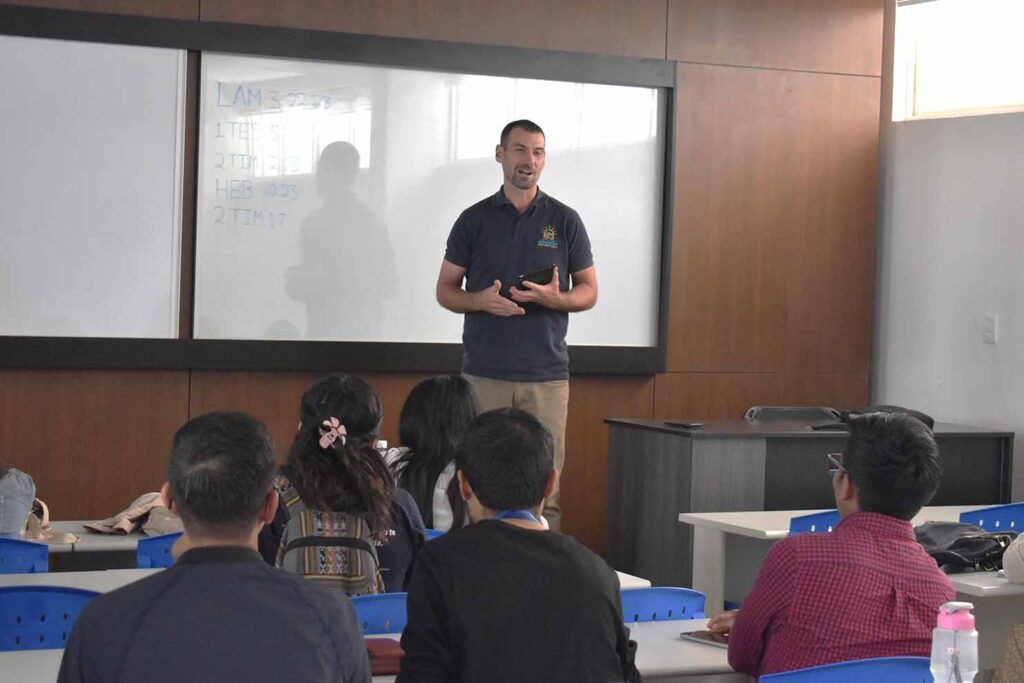Challenges and Fears Haven’t Stopped Supporting-Ministry Mission in Bolivia
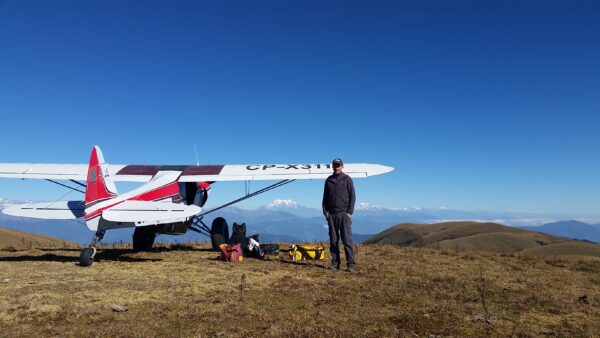
Gospel Mission Aviation is a ministry that focuses on reaching the most remote communities with little to no road access in western Bolivia. [Photo: Gospel Mission Aviation]
Gospel Mission Aviation keeps changing lives in remote areas against all odds.
June 25, 2025 | Silver Spring, Maryland, United States | Marcos Paseggi, Adventist Review
Harrowing mission ordeals. Stories of unbelievable answers to prayer. Ongoing challenges with no apparent solution. All these and more were part of David (DJ) Knott’s recent workshop during the Outpost Centers International (OCI) South American Convention in Cochabamba, Bolivia, May 15 to 18. OCI is an organization that connects hundreds of lay-led ministries that support the message and mission of the Adventist Church in almost 90 countries. One of them is Gospel Mission Aviation (GMA), which Knott leads.
GMA is a ministry that focuses on reaching the most remote communities with little to no road access in western Bolivia. “With the help of local and foreign volunteer medical professionals, GMA is entering these remote communities on foot, by air, by boat, or by jeep, carrying in free medical services and the good news of Jesus,” Knott states.

Gospel Mission Aviation includes land trips on some of the most difficult and dangerous roads in the world. [Photo: Gospel Mission Aviation]
In his May 17 workshop during the OCI South America Convention, Knott shared some of the major challenges and hurdles the ministry has encountered since he and his family—his wife, Jodi, and their three children—moved to Bolivia to serve. He also shared how, despite frustrations and setbacks, God is helping him and his team to move forward in faith.
Life Perils on the Mission Field
“What will be your greatest challenge and hurdle when serving as a mission pioneer?” Knott asked attendees to his workshop. Knott shared how 10 years ago he and a colleague had been sitting inside a mud hut in the cold of the highlands looking through an open door. “I couldn’t get out because after a 12-hour walk, we had been detained by residents,” he shared. “They [accused us of being] miners, and they would eventually decide what to do with us. It was a nerve-racking experience, as we had heard about cases of people taking the law into their own hands. . . . We were wondering whether we would leave that place alive.”
Knott and the others were finally freed and told to leave before they could serve the people of that particular place. “But that experience led us to meet someone who invited us to their community, which eventually opened up the whole area,” Knott shared. “So apparently we had to go through that ordeal to reach those communities with a message of hope.”

A student listens to David Knott’s presentation on the campus of Bolivia Adventist University on May 17. [Photo: Marcos Paseggi, Adventist Review]
A Crushing Loss
Other experiences in the mission field in western Bolivia have been even more consequential, Knott reported. He shared how three years ago he was called to evacuate someone for medical reasons from a remote location in the mountains. During the landing on a very wet, slippery hilltop, the ministry’s experimental Piper PA-18 Super Cub that Knott was piloting slid off the narrow hilltop in the Andes and was heavily damaged. It was a crushing loss for the mission: one that, according to Knott, was clearly his fault. He shared that he had disregarded his own limits and taken excessive risk in attempting the difficult landing under poor conditions.
“That aircraft had been instrumental since 2019, as it had reduced our trip to the communities in the highlands from a grueling 12- to 14-hour journey by jeep and foot to a 40-minute flight,” Knott said. “Now all seemed to have been in vain. I was very discouraged.”
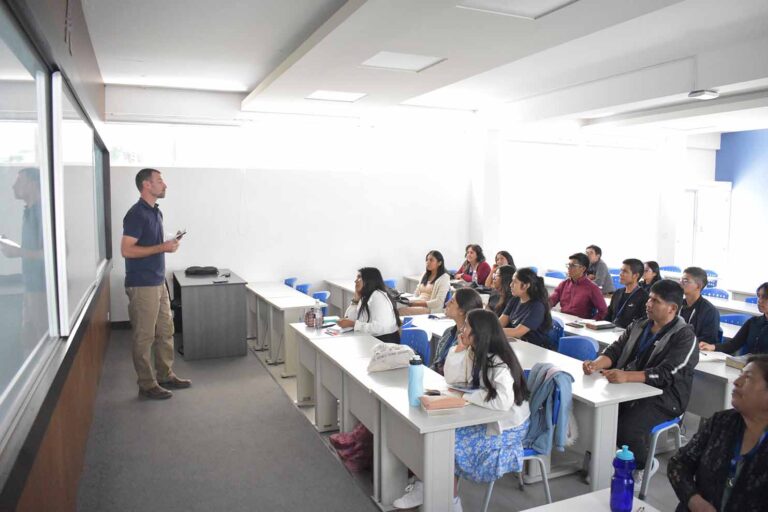
David Knott emphasized to those who want to be missionaries that the greatest challenge they will face is fear, but that God is always faithful. [Photo: Marcos Paseggi, Adventist Review]
Accused of Drug Trafficking
Knott, however, didn’t know at the time that the worst was yet to come. Two weeks later things got even more complicated. “As we were trying to recover the wrecked aircraft we were detained, accused of flying the aircraft for drug trafficking.” The group learned that after the story about the destroyed aircraft with no pilot went viral through photos someone had posted on social media, the government sent their anti-narcotics special forces to try to find the “drug traffickers.” They scouted the mountains for three days until they found Knott and his colleagues and arrested them at gunpoint.
“Eventually it became clear that we had nothing to do with drug trafficking, but our ordeal didn’t finish there,” Knott said. The challenge was for the army colonel in charge of the whole operation to go on record acknowledging they had made a mistake in detaining the missionaries. “It was a very embarrassing situation for him, so I entertained the possibility that someone would place some drugs inside the aircraft and accuse us of being traffickers just to save face and probably get a promotion. The stress I felt was extreme. I was sure that my mission service was done and that I might not see my family again,” he recalled.
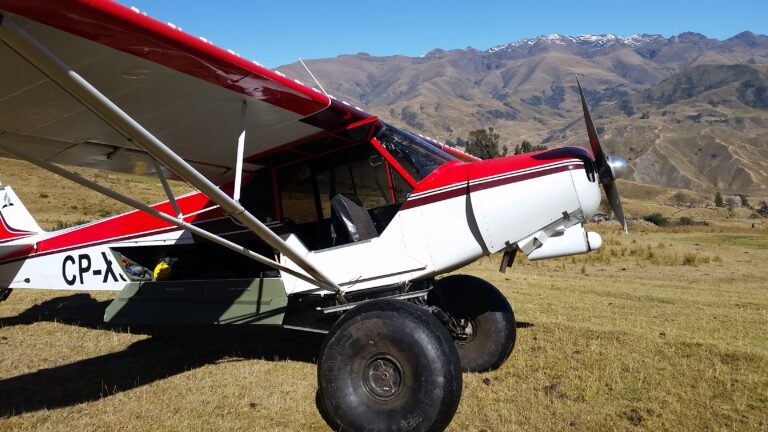
The experimental Piper PA-18 Super Cub that was destroyed after going down a hill after landing on a wet, slippery hilltop in the Andes [Photo: Gospel Mission Aviation]
From Terror to a Hymn in His Heart
It was a moment of profound despair for Knott and his colleagues, he shared. “I felt sheer terror creeping up as I considered the various options—all of them potentially deadly,” Knott recalled. But then the words of a well-known hymn came to his mind: “Be still, my soul: thy God doth undertake to guide the future as He has the past,” he said.*
“I began to remember how God had led in the past,” Knott said. “God had never failed us; He had always opened a way. That thought gave me peace, and soon I began to hope,” he recalled.
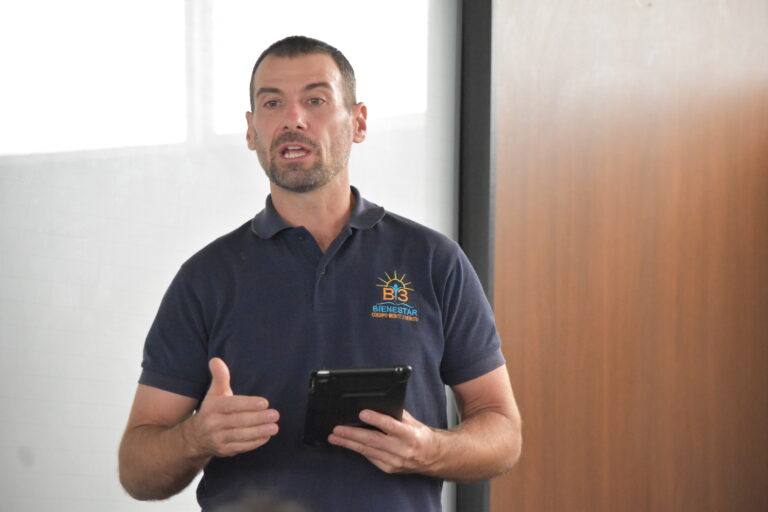
“ ‘If we are faithless, He remains faithful,’ ” read David Knott from 2 Timothy 2:13. “That’s the key to mission service.” [Photo: Marcos Paseggi, Adventist Review]
The Greatest Challenge
“If God is leading you to become a missionary pioneer,” Knott told attendees to his May 17 workshop in Bolivia, “I can guarantee you that the greatest hurdle you will face will be fear.” He explained: “You’ll be fearful for the future; you’ll fear that people won’t support you, that finances will fail, that you won’t find enough volunteers, that the government will interfere.”
Those fears are nothing new, Knott said, as the apostle Paul himself experienced them. “ ‘When we came to Macedonia, our bodies had no rest, but we were troubled on every side. Outside were conflicts, inside were fears,’ ” read Knott from 2 Corinthians 7:5. But despite biblical assurances, Knott emphasized, the question remains: “What do you do in a situation in which everything seems lost?”

Workshop attendees take notes on David Knott’s presentation on his experience as a pioneer missionary in the highlands of western Bolivia. [Photo: Marcos Paseggi, Adventist Review]
How to Face and Overcome Our Fears
Knott reminded prospective missionaries that they can be sure things will happen that will push them to consider just giving up. After talking to other pioneer missionaries like him, he found out that every one of them has experienced similar situations, when they thought every effort was in vain. “You will feel that everything seems to be lost, and in your doubts you will question whether God can work with such a weak and defective person as you think you are,” Knott said. “And if you are a leader, it’s an even stronger feeling because you feel you are negatively affecting other people’s lives,” he added. “You will certainly go through nights of silence, darkness, and anguish, just as Jacob in the Bible experienced.”
Despite all that, Knott called young people thinking of becoming missionary pioneers to remember God’s faithfulness in the past and focus on His promises for the future. “ ‘If we are faithless, He remains faithful,’ ” read Knott from 2 Timothy 2:13. “That’s the key to mission service.”
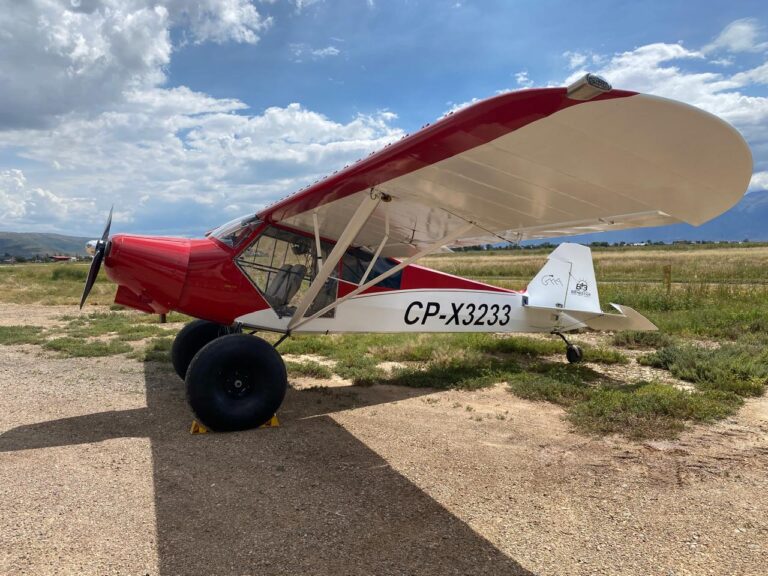
The new aircraft, which is now serving isolated communities in the lowland jungles of western Bolivia with emergency evacuations and cargo transportation [Photo: Gospel Mission Aviation]
A Modern Miracle
Knott then shared how in that particular ordeal in western Bolivia he felt it was a miracle that the colonel in question ended up acknowledging that he had made a mistake. “The colonel agreed he had been wrong and freed us with no charges,” Knott shared.
According to Knott, God’s intervention hasn’t solved all the ministry challenges. “I don’t know why God didn’t prevent my mistake that ended with the loss of the mission aircraft,” he said. “I also knew that God was powerful [and could] give us another plane, but I don’t always understand why He didn’t act as fast as I would like, as it took us years to recover from the loss. But I have acquired three more years of experience in the faithfulness of God, and we have started again from scratch, always trusting God in the process. And as we do it, we find time and again that He always comes through. I am certain He will never fail us.”
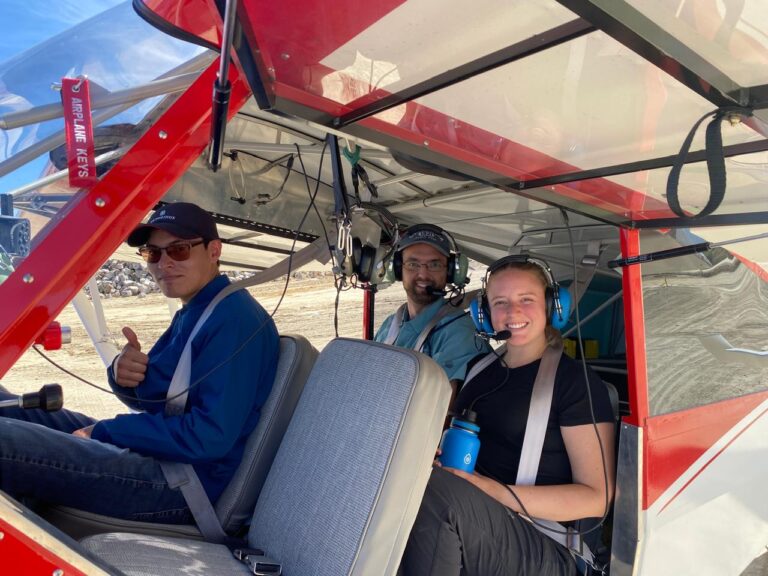
The new aircraft of Gospel Mission Aviation is larger and more capable. [Photo: Gospel Mission Aviation]
Outpost Centers International is a supporting ministry not affiliated with the corporate Seventh-day Adventist Church.
